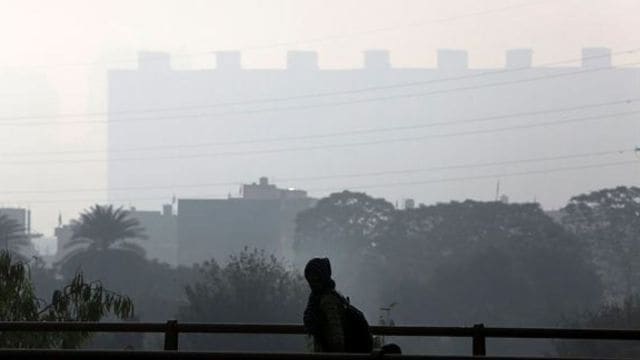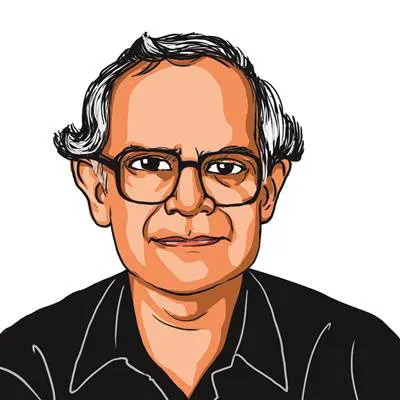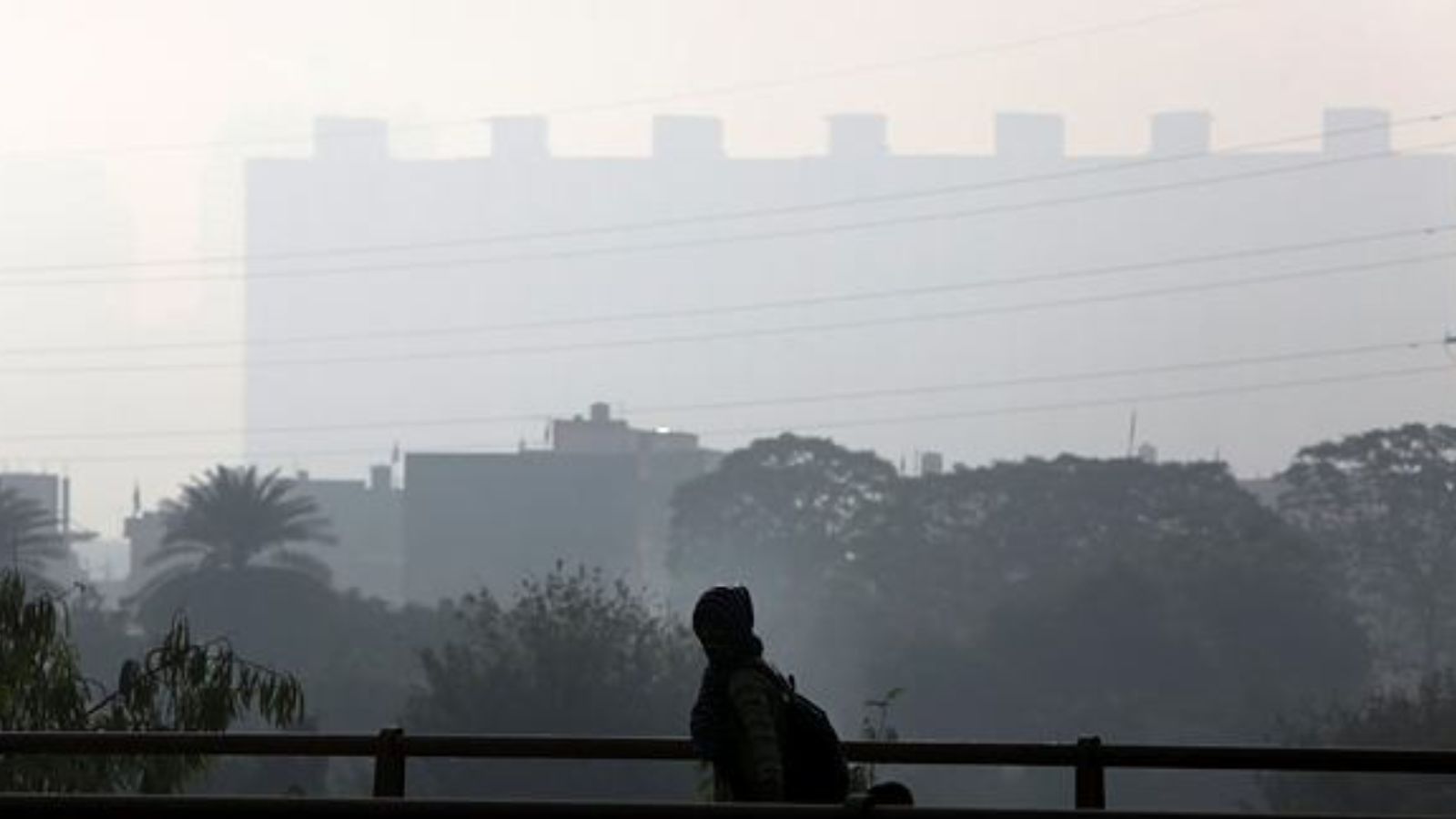

Dec 12, 2024 18:43 IST First published on: Dec 12, 2024 at 18:38 IST
Some years ago, I met a businessman on a train from Delhi. He was leaving Delhi for good, taking his business along. When I asked him why, he told me something I wish had figured in the annual lament over air pollution in Delhi. “My employees are constantly on a short fuse — ready to quarrel over every small thing,” he said. Then he explained: “It’s all due to the bad air; it has no oxygen.” I was stunned by the clarity of his remark. In my Grade X chemistry, I learnt how essential oxygen is for the human brain to function. Why does nobody mention it in the endless TV debates on Delhi’s air pollution? Respiratory ailments form the staple of these debates, and there is nothing wrong with that, but the brain’s ability to function and cope with life is closely related to air quality. Not everyone will make the connection between choking and impaired thinking and emotional well-being. That’s what this businessman had done before deciding to wind up.
Delhi is where all major decisions are made. The quality of these decisions is surely subject to the supply of oxygen. The thought makes one uneasy. You instantly know you are looking at a vicious cycle. Good decisions need to be made to resolve the pollution problem, but pollution affects decision-making capacity and the quality of decisions made. This loop is actually somewhat misleading because the poor supply of oxygen to the brain affects all decisions, not just the decisions about air quality. And if decisions about everything are now to be made in Delhi, certain areas of governance suffering from a backlog of good decisions will be worst affected. The area I am most familiar with is certainly one of them. So many decisions that universities and states used to make are now conveyed to them. They are supposed to comply and they do. Whether these decisions are suited to specific institutional conditions is not subject to debate either.
Discourse of Anxiety
Returning to debates on the environment, the discourse of anxiety has mutated numerous times during the last three decades. If you look back at the 1990s, you can recall how forests, big dams, biodiversity, and the loss of village commons were all recognised as important contributors to the environmental crisis. The range of concerns shrank when “global warming” acquired popular currency. As a label, it was supposed to cover air and water pollution, and a lot more, but floods and droughts were still seen at that time as results of freak weather. In regions like Bihar and Assam, they were perceived as annual routines with established protocols, which proved inadequate year after year. The Kosi River’s annual floods form the backdrop of Phaneeshwarnath Renu’s classics like Maila Aanchal and Parti Parikatha.
Towards the turn of the century, further shrinking of multi-national debates occurred. The new label was “climate change”. It was a good poster phrase, but a bit too compact. Of course, when experts use it, they pay due attention to carbon emissions, waste burning, and so on. As an overarching term, however, climate change doesn’t necessarily convey something worryingly complex. In TV debates and documentaries, we are told that the change in climate patterns is presenting new opportunities to certain regions. For example, we are told that some countries with long and bitter winters can now produce wine. In our country, we learn that inaccessible spots in the high mountains can now welcome tourists, and so on. The list of human resilience stories is quite long. They mitigate anxiety, permitting us to breathe deeply and move forward to embrace braver new worlds.
Market Mantra
Another feature of the new ethos around terrifying news about the environment is technology. Nearly every discussion on the economic implications of climate change now invokes the promise of green technology. It is a great linguistic invention. As a colour, green inevitably arouses the image of undisturbed forests and grassy meadows. No doubt the term gives hope and takes away the pain of a long struggle that switching from grey to green technologies will demand. Maintenance of hope, we are told, and avoidance of depressive resignation are important for mobilising the consumer public to cooperate. The market has mastered basic pedagogic mantras that teachers thought only they knew.
The recent international conference held in Baku reveals the absence of spontaneous concern and consensus over the crisis. The Baku debate boiled down to the price tag of a participatory initiative. The fight over who would pay was, of course, highly relevant, but it obfuscated many real issues waiting to be addressed to prevent more acute climate change than what is already happening. Air pollution was just one of the many issues raised, and it didn’t get much traction to be explicitly acknowledged.
most read
It is not merely an aspect of fossil fuel emission; there are multiple reasons as Delhi’s residents know all too well. It is apparently not an issue of much concern in Europe. It is typically perceived as a regional problem of South Asia, and even within India, it is seen as a problem of metropolitan cities and a few others in the Gangetic belt. Someone troubled by Delhi’s air does not find empathisers in Pune, Pondicherry or Bastar. In school classrooms in Madhya Pradesh, it is barely mentioned. And if there is empathy for Delhi in Lahore, it provides little solace, and even less hope, for obvious contemporary reasons.
So, it is just your doctor who worries about you. Persistent pollution has boosted the demand for medical help and air purifiers. According to received social scientific wisdom, what is good for business cannot be bad for the economy even if it impairs people’s ability to breathe deeply and work according to their full capacity. How can solutions be found in such a close-circuit orbit? We obviously require both real and metaphorical oxygen to pursue the matter. At Baku, few wanted to discuss the dust particles that the daily assaults on Gaza and Ukraine have widely dispersed for more than a year now. War contributes to climate change in ways that neither the industrialised nor the so-called developing countries want to raise.
Kumar is a former NCERT director and author of Thank You, Gandhi
Why should you buy our Subscription?
You want to be the smartest in the room.
You want access to our award-winning journalism.
You don’t want to be misled and misinformed.
Choose your subscription package


